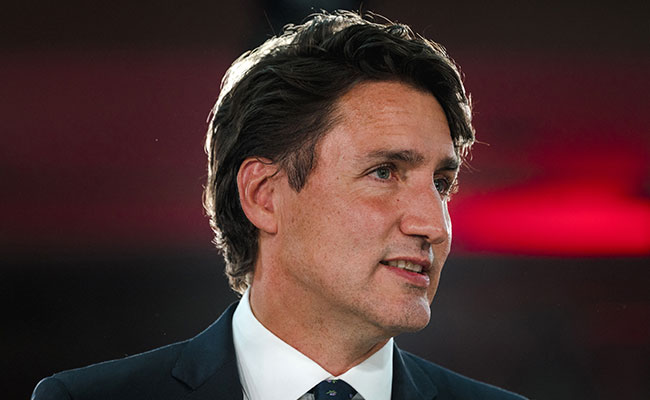
The K word has long been associated with Kashmir for India in geopolitics and diplomacy but now another K – Khalistan – has emerged as vastly contentious, souring ties between India and Canada.
In the latest statement that is sure to raise hackles in New Delhi, Canadian Prime Minister Justin Trudeau has accused the Indian government of involvement in the killing of pro-Khalistan activist Hardeep Singh Nijjar. Trudeau made the statement in the House of Commons as the Canadian parliament convened on Monday, “Any involvement of a foreign government in the killing of a Canadian citizen on Canadian soil is an unacceptable violation of our sovereignty,” he said, as reported by Canadian media.
Foreign Minister Melanie Joly later announced that Canada had also expelled a top Indian diplomat over the issue.
This comes just a week after Trudeau made a reference to “interference” while in Delhi for the G20 Summit. He had alleged Indian interference in Canada. While talking about his meeting with Prime Minister Narendra Modi and India having raised the issue of the Khalistan, Trudeau had said, “Diaspora Canadians make up a huge proportion of our country, and they should be able to express themselves and make their choices without interference from any of the many countries that we know are involved in interference challenges.”
A statement released by the Ministry of External Affairs after the Modi-Trudeau meeting said Prime Minister Modi had conveyed “strong concerns about continuing anti-India activities of extremist elements in Canada.”
Nijjar was killed outside a gurudwara on June 18 in Surrey in British Columbia. Nijjar was a known Khalistan backer and since his killing by two masked gunmen, his supporters have been accusing India of a role though no evidence was produced. After posters inciting violence had pictures of Indian diplomats, including India’s High Commissioner to Canada, Sanjay Kumar Verma, the former consul general of India in Toronto, Apoorva Srivastava, and the Consul General of India in Vancouver.
Responding swiftly to the posters associated with what was called a Freedom Rally, Melanie Joly had said, “Canada takes its obligations under the Vienna Conventions regarding the safety of diplomats very seriously.”
But two months since, the situation seems to have escalated and Prime Minister Trudeau has indicated that his government has “credible intelligence inputs of the Indian government’s involvement in the killing of Nijjar”.
However, some in Canada have called this a distraction as Trudeau faces a tough parliament session. Opposition leader Pierre Poilievre has already raised the issue of affordability and is expected to double down on his attacks on Trudeau. From a housing crisis to food inflation, Trudeau’s popularity has been sagging.
In the past, from 2018 to 2022, relations between the Modi government and Trudeau had worsened over the Khalistan row.
Trudeau’s 2018 visit to India was marred over the Khalistan issue with a major controversy breaking out over his former wife Sophie being photographed at an event in Mumbai with convicted Khalistan activist Jaspal Singh Atwal. It so turned out that Atwal was also invited to a dinner at the Canadian High Commission. The invite was recalled after the furore but the diplomatic damage was done.
Atwal had served 20 years in prison for having tried to kill the then Punjab cabinet minister Malkiat Singh Sidhu in Vancouver in 1986.
In 2020, after Trudeau’s support to the farmers’ protest in India, an open letter written by a group of former India diplomats had accused the Canadian PM of indulging in vote bank politics by pandering to pro-Khalistani elements. The letter had said that Khalistani elements in Canada control a number of prominent Gurudwaras, which gives them access to substantial funds, some of which are allegedly diverted to the electoral campaign of political parties especially the Liberals.
With both domestic issues at play and now a risky entanglement with India over a sensitive issue, it seems Trudeau faces a tough fall season.
(Maha Siddiqui is a journalist who has extensively reported on public policy and global affairs.)
Disclaimer: These are the personal opinions of the author.




